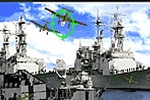

had broken the Japanese diplomatic code dubbed "Purple," which was used by Tokyo for important communications with its embassies. Intelligence sharing was equally haphazard, with different government departments hoarding their signal intercepts. Both activities were considered dead-end jobs ones that could stigmatize future career prospects. Turnover among cryptographers and intelligence analysts was high. There was a widespread shortage of Japanese translators. Nonetheless, the application of that intelligence was often haphazard. had succeeded in breaking many, although not all, of the Japanese military and diplomatic codes. American code breaking activities were very sophisticated and highly advanced. in the period immediately prior to the attack has also encouraged the conspiracy theorists. The history of the signal intelligence obtained by the U.S. The America First Committee criticized the convoy escort activity as being deliberately provocative to Germany and accused Roosevelt of seeking a war with Berlin. Navy destroyers, in collaboration with the Royal Canadian Navy, began escorting Canadian and British merchantmen as far as Iceland. In 1941, the number of ships assigned to those sweeps doubled and their patrol zone was extended all the way to Iceland.

Over the course of 1940, the Navy conducted "battleship sweeps" in the western Atlantic to deter German commerce raiders and U-boats from entering the neutrality zone. Following the start of WW II, Stark had ordered "Neutrality Patrols" in the Caribbean and in waters 200 miles off the coasts of both North and South America. Naval operations in the Atlantic over 19 were consistent with Roosevelt's focus on Germany. It was at that point, a year before the Japanese attack, that Roosevelt authorized joint talks between the British and American military chiefs of staff to implement "Plan D." The "Germany first" policy wasn't officially announced to the public until the "Arcadia Conference," a year later, between Roosevelt and Winston Churchill, held in Washington DC between Decemand January 14, 1942. That policy recommendation, later dubbed "Plan D," was widely supported within the Roosevelt Administration, including by then-U.S. The fourth option, titled "D," argued for a "Germany first" strategy regardless of any potential threat from Japan, and recommended that American assistance to Britain should also include the deployment of U.S. Stark subsequently laid out possible policy options to Roosevelt in a formal memo. About that time, Roosevelt also received a letter from Albert Einstein in which he warned that Nazi Germany was working on the development of an "atomic bomb" of enormous destructive power. Stark told Roosevelt that without American aid Great Britain would inevitably be defeated by the Nazis, leading to German domination of Europe, Africa and the Middle East. Stark, the Chief of Naval Operations, on the war situation in Europe. Roosevelt ran on the promise that "no American boys would be sent to fight in Europe," he received a briefing from Admiral Harold R. Shortly after the 1940 presidential election, a campaign in which Franklin D. Flynn, a co-founder of the America First Committee, published a 46-page booklet, The Truth About Pearl Harbor, in which he formally raised what historians have called the "advance-knowledge conspiracy theory." The debate still rages. The attack has spawned a heated debate over whether the Roosevelt administration had advance knowledge of the impending attack and allowed it to take place to create a pretext for U.S. The investigation, issued as the Dorn Report, absolved Kimmel and Short of responsibility for the devastation caused by the attack and recommended posthumously restoring Kimmel and Short to the ranks they held prior to the attack. Short for a lack of preparedness prior to the Japanese attack on Pearl Harbor. A tenth inquiry was held as recently as 1995, when the Department of Defense re-examined the culpability placed on Rear Admiral Husband E.

government conducted nine official inquiries. Between 19, various departments of the U.S. No American military engagement has undergone more post-mortems than the Japanese attack on Pearl Harbor.


 0 kommentar(er)
0 kommentar(er)
